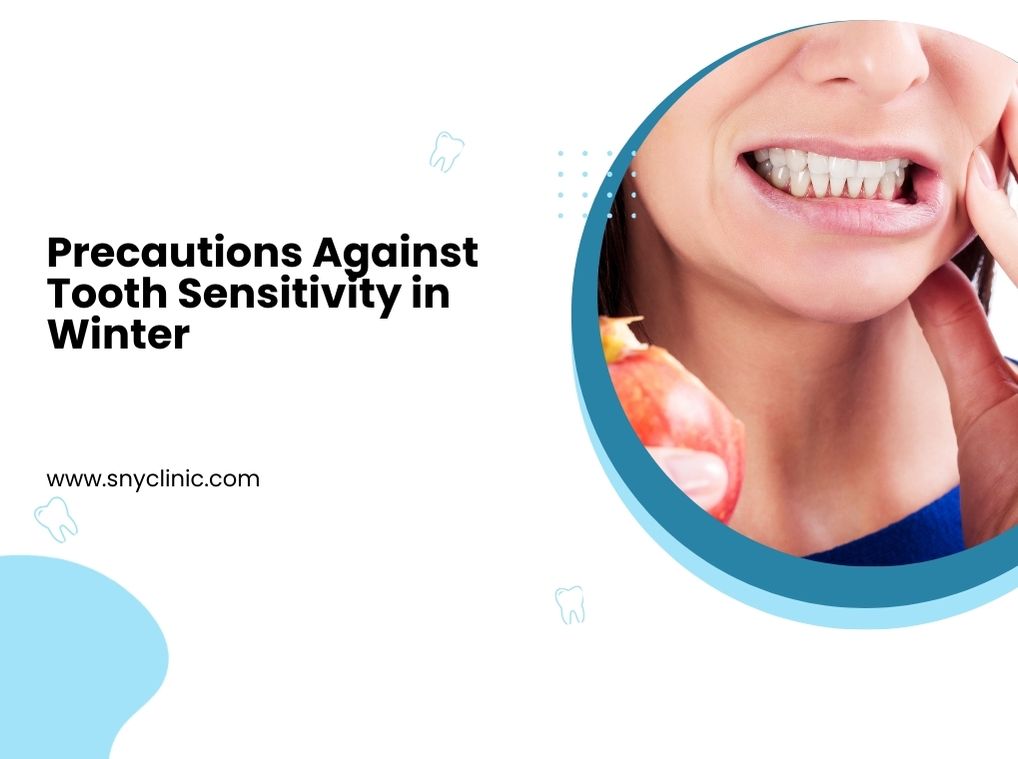
Precautions Against Tooth Sensitivity in Winter
Precautions Against Tooth Sensitivity in Winter
Do not let the increased tooth sensitivity caused by cold weather in winter bother you. Here are effective methods and preventive tips to protect your teeth.
The cold weather of winter not only affects our immune system but also directly impacts our oral and dental health. For people suffering from tooth sensitivity, this period can be particularly challenging. Drinking a glass of cold water suddenly, breathing in cold air outside, or even sipping a hot cup of tea can cause sharp pain. So, what precautions can we take against this increased tooth sensitivity in winter? In this article, you will find ways to protect your teeth with both daily habits and professional solutions.
What is Tooth Sensitivity?
Tooth sensitivity occurs when the protective layer of the tooth, the enamel, weakens or when gum recession exposes the dentin layer. The nerve endings in the dentinal tubules cause pain when they come into contact with hot, cold, or acidic foods. Especially in winter, sudden temperature changes make this sensitivity even more noticeable.
Causes of Tooth Sensitivity in Winter
There are several reasons why tooth sensitivity increases in winter:
- **Cold air**: Breathing in cold air directly touches the tooth surface and may cause pain.
- **Gum recession**: Gum recession, which is felt more in cold weather, exposes the dentin surface.
- **Weakened enamel**: Acidic drinks, incorrect brushing techniques, or teeth grinding can thin the enamel.
- **Cavities and cracks**: Small cavities or invisible cracks become more painful when exposed to cold.
Daily Precautions Against Tooth Sensitivity
1. **Correct Brushing Technique**
Incorrect brushing wears down the enamel and causes gum recession. Therefore:
- Use a medium or soft-bristled toothbrush.
- Brush your teeth with circular and gentle motions, not horizontally.
- Brush twice a day for at least 2 minutes.
2. **Use Toothpaste for Sensitivity**
Specially formulated toothpastes close the dentinal tubules on the tooth surface and reduce sensitivity. With regular use, the effect becomes noticeable within 2–3 weeks.
3. **Avoid Excessively Acidic and Sugary Foods**
Acidic beverages (soft drinks, fruit juices) and excessive sugar consumption weaken the enamel. Especially after consuming citrus fruits for immunity in winter, rinse with water.
4. **Use Mouthwash**
Fluoride mouthwashes strengthen enamel and reduce sensitivity. They also support oral hygiene by lowering the risk of cavities.
5. **Avoid Teeth Grinding and Clenching**
In winter, stress and irregular sleep can increase the habit of clenching teeth. This causes enamel wear and worsens sensitivity. Using a night guard is an effective solution.
The Role of Nutrition in Winter
- **Milk and dairy products**: The calcium they contain strengthens the enamel.
- **Walnuts, almonds, hazelnuts**: Rich in magnesium and phosphorus, they support tooth structure.
- **Plenty of water**: Neutralizes acids in the mouth and protects the teeth.
- **Limit sugary snacks**: Consume them in moderation at certain times of the day instead of frequently.
Professional Solutions
If your tooth sensitivity does not improve with daily measures, you should consult a dentist. Professional treatments include:
- **Fluoride applications**: Strengthen enamel and reduce sensitivity.
- **Bonding treatment**: Covers exposed dentin surfaces.
- **Gum treatment**: If there is gum recession, surgical procedures can cover exposed roots.
- **Root canal treatment**: Provides a permanent solution for advanced sensitivity.
Extra Tips to Protect Teeth in Winter
- Avoid consuming extremely hot and cold foods back-to-back. For example, drinking cold water right after hot tea triggers sensitivity.
- Instead of breathing through your mouth in cold weather, breathe through your nose. This prevents teeth from direct exposure to cold air.
- Quit smoking. Smoking damages gum health and causes recession.
- Do not neglect regular dental check-ups. Visiting the dentist at least twice a year is important for early diagnosis of potential problems.
Tooth sensitivity in winter is a common problem that negatively affects the quality of life for many people. However, with proper oral care, healthy nutrition, and professional support, it is possible to overcome this issue. Protecting your teeth from the harmful effects of cold not only prevents pain but also ensures long-term oral health.
Remember, the health of your teeth is part of your overall health. The small precautions you take during the cold winter days can protect you from major dental problems.




